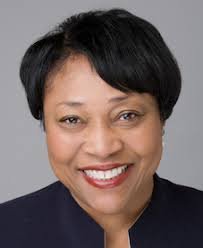About Teachers as Facilitators
THE AUTHORS
The authors bring decades of practice facilitating groups and teaching others to confidently facilitate their own meetings. Their personal and collective experiences working with a spectrum of meeting types – from routine processes to emotionally charged topics – inform the resources and approaches they present in this book.
“Your warmth, kindness and wisdom were so apparent and I think we could all feel it in the room.”
Carolyn McKanders writes from her experience as an urban teacher, social worker, staff development specialist and international consultant. She is Co-Founder of The Center for Adaptive Schools supporting collaboration and group facilitation.
Dr. Robert Garmston is Emeritus Professor of Educational Administration at California State University, Sacramento. He is Co-Developer of Cognitive Coaching with Dr. Art Costa and Co-Developer with Bruce Wellman of Adaptive Schools.
It’s Your Turn: Teachers as Facilitators
This is the book for teacher-leaders who run meetings, lead data-teams, and chair grade level and department groups. Based on over 400 interviews with teachers, teacher leaders, and their supervisors from a diverse set of U.S. and International schools, this book responds to the tensions identified by teacher facilitators and provides practical strategies and tools organized by Five Mindsets.
The Five Mindsets
This book grew from conversations and survey feedback shared by over 400 teachers, teacher leaders, and their supervisors from a diverse set of U.S. and international schools. These reports confirmed our long-held sense that teachers who facilitate meetings with their peers encounter unique challenges. Often, they struggle to balance the demands of managing time, energy and processes while simultaneously navigating the challenges of being a colleague and maintaining one’s own professional integrity.
Teacher facilitators frequently feel caught between the expectations of their supervisors and desire to maintain affiliations with their teammates and peers. This in-turn requires them to negotiate the sometimes delicate dance of being handed responsibility for task completion without the authority to compel the full participation of their co-workers.
Given the emotional and mental complexities of this work, it is no wonder that many of our respondents felt overwhelmed and in need of resources that provide robust mental models, skill development, and practical tools for conducting productive meetings and promoting growth-oriented groups.
We each bring decades of practice facilitating groups and teaching others to confidently facilitate their own meetings. Our personal and collective experiences working with a spectrum of meeting types - from routine processes to emotionally charged topics - in form the resources and approaches we present in this book.
This handbook is for all teacher facilitators who want to learn, grow and make a difference in their workplaces.



